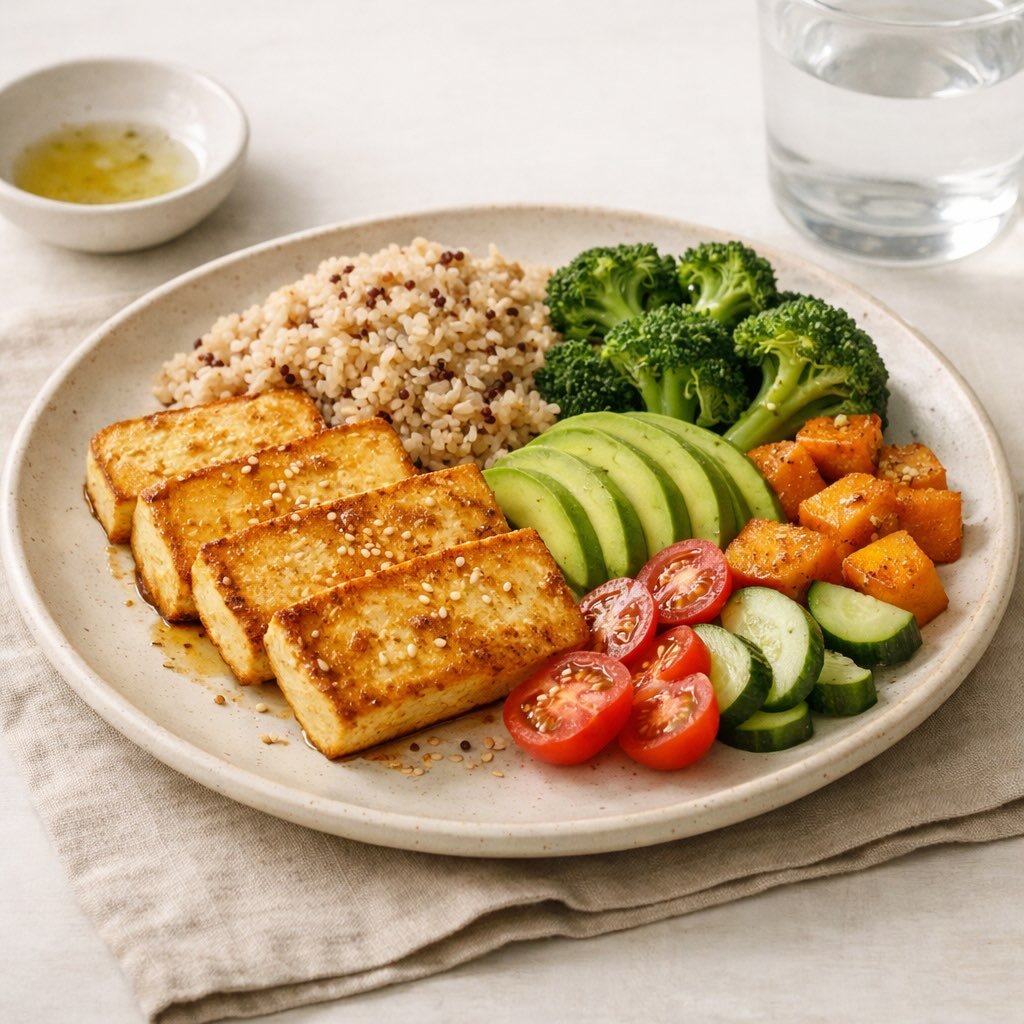Tofu for Athletes: Fuel Performance and Recovery Naturally
Tofu Is Not “Light Food” — It’s Functional Fuel
There’s a lingering myth that tofu is too soft, too light, or too gentle for serious athletes. That idea couldn’t be further from the truth.
Tofu is a complete protein, meaning it contains all nine essential amino acids required for muscle repair and adaptation. But more importantly, tofu behaves differently from animal protein in the body—often in ways that actively support recovery, consistency, and long-term performance.
For athletes, what matters isn’t just protein quantity. It’s digestibility, inflammation control, hydration balance, and repeatability—how well your body can train again tomorrow.
That’s where tofu quietly excels.
Protein Quality: Why Tofu Works for Muscle
Soy protein is one of the most studied plant proteins in sports nutrition. It consistently shows:
A complete amino acid profile
High leucine content (key for muscle protein synthesis)
Strong digestibility without gastric heaviness
While animal proteins digest fast and spike amino acids aggressively, tofu delivers amino acids steadily, which can be beneficial for endurance athletes and for post-training recovery without digestive stress.
This makes tofu especially useful for:
Double training days
Early-morning sessions
Athletes are prone to gut discomfort
Muscle isn’t built in one meal—it’s built across weeks of consistent recovery. Tofu supports that rhythm.
Recovery Isn’t Just Protein — It’s Inflammation Control
Training creates micro-damage. Recovery is the process of managing inflammation without shutting adaptation down.
Tofu naturally contains:
Isoflavones that help modulate inflammatory responses
Polyunsaturated fats that support cellular repair
No cholesterol, reducing systemic inflammatory load
Athletes who rely heavily on animal protein often unknowingly increase baseline inflammation, which can:
Delay recovery
Disrupt sleep
Increase injury risk over time
Tofu doesn’t just rebuild muscle—it helps keep the recovery environment calm enough for progress to continue.
Hydration, Glycogen & Mineral Support
Unlike dry protein powders or dense meats, tofu is a hydrated protein matrix. This matters more than it sounds.
During and after training, the body needs:
Water
Electrolytes
Amino acids
Tofu delivers protein with water already bound into its structure, supporting:
Faster gastric emptying
Better post-workout rehydration
Improved mineral absorption (especially calcium-set tofu)
For endurance athletes, tofu pairs exceptionally well with carbohydrate sources like rice, noodles, or potatoes—supporting glycogen replenishment without heaviness.
Strength Athletes: Yes, Tofu Scales
There’s a persistent belief that tofu is “too soft” for strength sports.
In reality, texture is a processing choice, not a protein limitation.
Extra-firm and super-firm tofu provide:
High protein density
Minimal water loss during cooking
Excellent browning and chew when pan-seared or baked
When paired with:
Salt (protein tightening)
Heat (surface dehydration)
Fat (aroma and calorie density)
Tofu becomes structurally and nutritionally comparable to traditional strength-meal proteins—without the recovery downsides.
Pre-Workout vs Post-Workout: How to Use Tofu Strategically
Pre-Workout
Best forms:
Silken or medium tofu
Lightly seasoned, low-fat
Why:
Easy digestion
Stable energy release
Minimal gut stress
Post-Workout
Best forms:
Firm or extra-firm tofu
Paired with carbs and a little fat
Why:
Sustained amino acid delivery
Supports muscle repair over hours
Reduces post-exercise inflammation
Tofu’s flexibility allows athletes to tune texture and timing—not just macros.
Mental Performance & Training Consistency
Performance isn’t only physical.
Athletes who eat heavily animal-based diets often report:
Post-meal lethargy
Poor sleep quality
Sluggish training sessions
Tofu-based meals are lighter on the nervous system while still nutritionally complete. Many athletes find this leads to:
Better sleep
More consistent training output
Improved long-term adherence
Consistency beats intensity over time—and tofu supports consistency.
Sustainability: Performance Without Burnout
Athletic careers depend on the longevity of the body and the system supporting it.
Tofu requires:
Significantly less land and water
Lower greenhouse gas emissions
Fewer resource inputs per gram of protein
Choosing tofu isn’t a compromise. It’s an optimisation—for personal health and planetary health alike.
Final Takeaway: Strong Bodies Can Be Built Gently
Tofu doesn’t shout. It supports.
It rebuilds muscle without inflaming the system.
It fuels performance without digestive chaos.
It allows athletes to train again tomorrow—stronger, calmer, and more resilient.
You don’t need more aggression in your diet.
You need reliable recovery.
And tofu delivers that—quietly, powerfully, and sustainably.
One meal at a time, strength can be kinder too. 🌱💪

